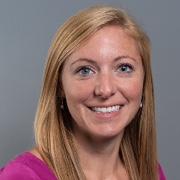Pregabalin, commonly known under the brand name Lyrica, is a Schedule V controlled substance in the United States under the Controlled Substances Act. Schedule V substances are the least regulated of all controlled substances, with a low but still present potential for abuse, and accepted medicinal use.
What schedule classification is Lyrica?
When pregabalin (Lyrica) was released in the U.S. in 2005, the Drug Enforcement Agency (DEA) made it a Schedule V (Schedule 5) controlled substance under the federal Controlled Substances Act.[1]
Substances in Schedule V have accepted medical uses and the lowest potential for abuse of controlled substances. Abuse of schedule V substances is thought to possibly lead to “limited physical dependence or psychological dependence.”[2]
Schedule V drugs often include small quantities of narcotics or other prescription medications such as Lyrica with legitimate medical use and limited but existent potential for abuse.
In addition to Lyrica, other drugs in Schedule V include:[3]
- Cough medications with less than 200mg of the opiate codeine (e.g. Robitussin AC)
- Lomotil, an anti-diarrheal medication with a small quantity of the opioid diphenoxylate
- Motofen, an anti-diarrheal medication with a small amount of the opioid difenoxin
Schedule V drugs can be legally possessed without a prescription. Some are available over the counter.[4]
Why is Lyrica a controlled substance?
In placing Lyrica in Schedule V, the DEA cited clinical trials that found pregabalin produced acute euphoric effects in an “unusually high” percentage of individuals. Additionally, the agency said clinical trials showed pregabalin produced positive psychic effects similar to those elicited by the benzodiazepines diazepam (Valium) and alprazolam (Xanax), themselves classed in Schedule IV.[1]
In the nearly 20 years since the DEA made that decision to schedule pregabalin, the abuse potential of pregabalin has been backed up by anecdotal reports. Pregabalin, and the related gabapentin, are now commonly used by opioid abusers, who report it enhances their high. The drug has also turned up as a cutting agent in illicit opioid supplies.[5] Reports of pregabalin abuse are also recently surfacing in medical literature: a 2018 study from Israel found high levels (17.7%) of pregabalin abuse among patients at a methadone clinic.[6]
Lyrica's potential for abuse and addiction vs gabapentin
People often wonder why Lyrica (pregabalin) is a controlled substance while the similar medication gabapentin (sold under the brand name Neurontin) isn’t. The drugs are both analogs for the neurotransmitter GABA, are prescribed for largely the same conditions (epilepsy and neuropathic pain), and have the same side effects (fatigue, dizziness).
The answer is that pregabalin is more rapidly absorbed, has a higher bioavailability, and is more potent: two to four times as strong as a pain reliever and three to 10 times as potent as an anti-epileptic.[7]
Additionally, studies suggest that pregabalin is more likely to produce behavioral dependence. In a review of case studies of gabapentinoid abuse, symptoms of behavioral dependence—including cravings and drug-seeking—were found in 79% of studied users of pregabalin, compared to just 8% of studied users of gabapentin. However, most of the users included in the study had pre-existing or concurrent substance abuse issues, and the study authors concluded that in the general population, both gabapentinoids are “quite rarely addictive.”[8]
However, gabapentin, like pregabalin, does also have the potential for abuse among people with substance abuse issues, especially addictions to heroin and other opioids. Some jurisdictions, especially those hit hardest by the opioid crisis, have tightened controls on gabapentin accordingly. Alabama, Kentucky, Michigan, North Dakota, Tennessee, West Virginia, and Virginia have all made gabapentin a Schedule V controlled substance at the state level.[9]


-guide-detail.jpg?v=1722501965)
-guide-detail.jpg?v=1722503263)
-guide-detail.jpg?v=1756808565)